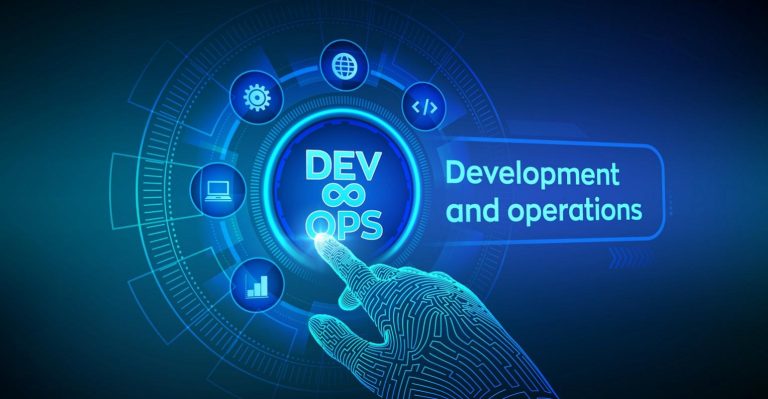DevOps is a new catalyst that is rapidly spreading through the entire tech industry. Over time it has gained much popularity and everyone has their own interpretation of it. It emerged a couple of after agile programming practices, and nowadays people are attempting to figure out the relevance of enterprise DevOps. Before we move on to that, we first need to understand DevOps, its culture, and some other aspects.

A Major Division in the Industry
There are lots of kinds of divides in the tech industry. DevOps concepts solve this one in particular. Therefore, to understand and fully appreciate DevOps we first need to target this dispute. Within any software company, there’s for ages been a divide between the development and operations teams.
Development teams are responsible for creating feature-rich, seamless integrations that have varying requirements with each new customer. They’re responsible for changing user requirements, maintenance, and continuous development activities. The takeover at the start of the SDLC development cycle.
On the other hand, Operation teams are primarily responsible for system stability and accessibility. They can be found in towards the finish of the method where handover of a software release is given. Their responsibility is reviewing implementations by the development teams and ensuring the system is obtainable and stable, and recommend changes if necessary.
To break the silos between Dev and Ops DevOps requires a few leaps, enabling better collaboration and performance.
What Is DevOps?
The agile admin defines DevOps as,
DevOps may be the practice of operations and development engineers participating together in the whole service lifecycle, from design through the development process to production support.
The term “Dev” is an umbrella term for not only developers, but any person within the development of the product. So, this could include QA engineers, SR engineers, and other disciplines as well. Essentially, the “dev” team would be the makers of the product.
Secondly, the term “Ops” covers all operations staff including systems engineers, system administrators, release engineers, network engineers, and all other relevant disciplines. The “Ops” team is responsible for the product after its development is complete.
To conclude, operations engineers need to adopt the same methods adopted by developers and vice versa. DevOps extends Agile principles beyond just the development stage. Rather it extends it within the boundary of development and onto the whole process up till delivery.
Is Enterprise DevOps Any Good?
Considering that the advent of DevOps, SMBs (Small Medium-sized Business’s) are most widely used in its approaches and tools. A report suggests that the rounded 70 percent of SMBs are actually adopting DevOps.
To tell the truth, most of the tools and approaches in DevOps are functional in SMBs because of the size of the teams and the simplicity of the operations. Whenever the question on the applicability of Enterprise DevOps has risen it is met with mixed answers. Realistically, for Enterprises, a shift from their traditional solutions to DevOps will be a lot harder than SMBs.
Enterprises have big teams, operational complexity, departmental regulations, and internal and external constraints. Atop these problems, the need for Enterprises to adopt DevOps is quite real. Competitors are constantly shifting while undergoing changes within their teams, plans, and software management. They’ve to deal with these constraints, and that is why for Enterprise DevOps to be functional, a couple of factors should be kept in mind.
Value Confidence Among All Departments
When Enterprise DevOps is introduced across the organization it leaves room for a lot of confusion. People are used to just how things were. While this change is aimed to introduce innovative approaches, it might due to concern for many. It may introduce unnecessary risks due to sudden change and affect customer relationships with the organization.
Preplanning things before problems arise can assist in preventing them. To produce this shift comfortably, the organization should value overall consistency and security for new and existing software for the very start. Additionally, even although the system is transitioning, quality and constancy standards should still function as the same. This maintains the confidence of the employees and the prevailing customers in the organization.
Don’t Replace What Works
An enterprise takes years of effort to construct a name for itself, and be as functional because it is. Enterprise DevOps Applications would bring greater benefits but that does not mean that successful practices should be replaced. When shifting to Enterprise DevOps it can be very tempting to alter everything new and upcoming, but it is not necessarily the very best practice.
Introducing the mandatory changes and keeping tried and tested approaches is the best possible method of the shift properly. Instead of starting fresh, the focus should be directed towards building on what’s already working. It leaves very little room for uncalculated risks and may be incredibly efficient. The corporation won’t need certainly to undergo trial methods for each approach again, thus maximizing efficiency and profit metrics through this approach.
Elimination of Operational Inefficiencies
While DevOps targets introducing a flow of changes organization wise some operations can become inefficient. Eliminating such operations that restrict DevOps objective makes it easier for teams over the organizations to generally meet demands and deliver results. The collaboration of the development and operation teams is essential for identifying these issues. Not merely these, elimination requires the collaboration of every part involved including vendors to departments allow a fruitful transition to DevOps.
Consider Hiring a Few Designated DevOps Engineers
There’s a misconception among people that the DevOps Engineer is an ordinary developer writes code and can also be responsible for the task of a System Engineer. But that is not how it works! An effective DevOps Engineer works together developers and the IT staff to oversee the code releases. They are either of both: A developer who gets enthusiastic about deployment and network operations or A sysadmin writing scripts and code and who moved into the development side.
Either way, a DevOps Engineer understands the Software Development Lifecycle and has the outright comprehension of various automation tools for developing digital pipelines (CI/ CD pipelines). For an effective and long-lasting transition, you will need to hire more than one DevOps Engineers. Enterprise DevOps needs effective management and a specialist may do a much better job than employees who have just been introduced to the approach. You can also choose to invest in your employees and keep these things trained specifically in DevOps.
Emphasize Security
It’s no surprise that with the added pressure of deadlines, limited collaboration between teams, and the newly introduced transition security isn’t given its due importance. Consequently, organizations don’t have the full time or the resources to emphasize the significance of security within their systems and development approaches amongst their development and operation teams.
But to properly transition to DevOps you will need to concentrate on security because it is completely different than IT Ops. Based on DigiCert’s Inviting Security into DevOps Survey, 98 percent of organizations are integrating security teams into their DevOps procedures. Organizations need to introduce new software tools as well along with predefined security configurations as security directly affects the efficiency of software development and customer experience.
Track Progress
Organizations need to introduce metrics that track the progress of the new approaches they have taken on. The organization-wide introduction of these metrics streamlines operations while the teams move towards the completion of software projects. Tracking the task process of every project creates further reference material for further use in case the need arises.
These resources can behave as typical for the employees who will then improve them as certain requirements change. It’s about making the system more efficient. Every change accommodates previously ignored facets of these standards.
Conclusion
Many organizations have successfully transitioned to Enterprise DevOps. Their case studies serve as proof it is applicable in Enterprises as well, not just SMBs. Obviously, change does not happen overnight, that is an enterprise we’re talking about. You’ll need to remember that organizations that successfully transitioned took anywhere from one to two years. While contemplating your personal transition, you will need to keep this time frame and a collection budget in mind.
This change is necessary now, a report suggests that 81 percent of enterprises have already shifted to DevOps. It’s necessary that organizations stay competitive while meeting customer requirements and deadlines. Following these steps and having a proper strategy when your transition will make it easier for the organization to adopt Enterprise DevOps.
Source: Dzone
Discover more from Technology News
Subscribe to get the latest posts sent to your email.
pencinta, slots Pernah mendengar semboyan “slot demo” Kalau belum? siap-siap cinta, program jatuh slot demo sama merupakan ini. slots selalu mesin kasih yang win Ya slot-slot. dikatakan, adalah ini bisa jagoannya tuk membawa come back cuan. any way cemana
tekniknya, jumpain sih slot gaco benar Santai yang Bro and Sis? bahas aja, kita di sini {santai|tenang] Gaming terbaik
saat sekarang hanya satu berada hanya di akan Indonesia memberikan imbal hasil tertinggi return on Investment terbaik



